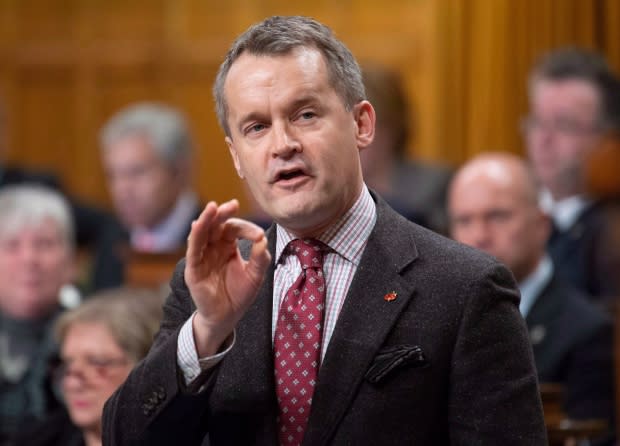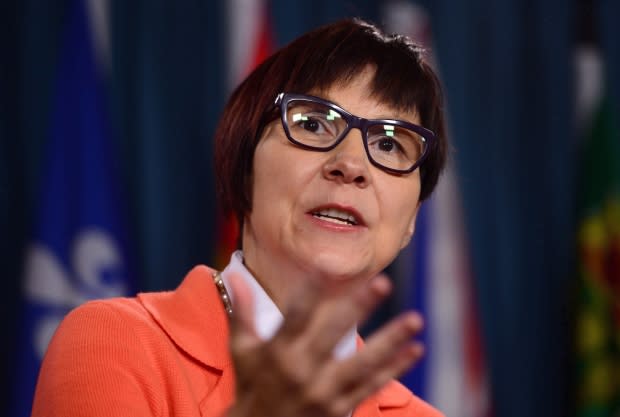Ottawa fighting First Nation groups over compensation for child welfare discrimination
The federal government is battling First Nations organizations before the Canadian Human Rights Tribunal to avoid compensating First Nation children who went through the on-reserve child welfare system.
The tribunal ruled in 2016 that Ottawa discriminated against First Nation children by underfunding on-reserve child welfare services.
The First Nation Child and Family Caring Society and the Assembly of First Nations (AFN) argued Ottawa owes compensation to every First Nation child that was affected by the system.
The tribunal can award up to $40,000 in compensation to a victim of systemic discrimination — $20,000 per victim of discrimination plus $20,000 if the discrimination was willful and reckless.
However, Justice Canada lawyers, acting on behalf of Indigenous Services, argue that compensating potential victims — going back to 2006 — is outside of the scope of the case, which was triggered by a human rights complaint filed by the Caring Society with the support of the AFN.
"Remedies must be responsive to the nature of the complaint made, and the discrimination found," according to Ottawa's submission filed with the tribunal on Tuesday.
"That means addressing the systemic problems identified and not awarding monetary compensation to individuals."
Ottawa argued in its submissions that the AFN and the Caring Society were public interest organizations and not "victims of the discrimination" and did not meet the standard for compensation.
"Underfunding did not cause specific children to be removed from their homes; additional funding would not necessarily have enabled them to stay," said Ottawa's filing.
"No case law supports the argument that compensation to individuals can be payable in claims of systemic discrimination without at least one representative individual complainant."
Ottawa does not wan to pay for 'lost childhoods'
Ottawa also disputed that it was responsible for "willful or reckless discrimination" arguing that such a finding would only surface if a party had failed to follow the tribunal's orders.
"There is no evidence of a consistent failure to comply with orders," said the filing.
"Canada's funding for child welfare services has consistently changed to address shifts in social work practice and the increasing cost of providing family services."

Cindy Blackstock, who heads the Caring Society, said the tribunal has issued seven compliance orders against Ottawa— which Ottawa argues were meant to simply "provide additional guidance."
Blackstock said she was "stunned" that Ottawa now claims it has never failed to follow the tribunal orders in the case.
"In 2016 the Canadian Human Rights Tribunal found Canada to be discriminating against another generation of First Nations children in ways that incentivized their removal from their families and were ordered to stop," said Blackstock.
"They did not stop and multiple non-compliance orders followed. Now Canada does not want to pay the children anything for their lost childhoods."
The Caring Society and the AFN have suggested two different models for compensation.

The Caring Society wants to see the compensation money put into an independent trust fund for families and children impacted by the child welfare system, while the AFN is seeking to have the money go directly to individuals and their families.
While the AFN did not respond to a request for comment, its April 4 submission states the nature of the systemic discrimination specific to First Nation people required "creative measures" to ensure it dosen't happen again.
"The systemic discrimination is also rooted in the respondent's attitudes, prejudices, mind sets and habits against First Nations people which it has acquired, fostered and maintained over generations," said the AFN's filing.
Indigenous Services Minister Seamus O'Regan's office issued a statement late Wednesday saying the minister would rather negotiate than litigate. The statement said that the issue of compensation was "an important one to acknowledge that there has been discrimination" and that the focus would be on continued, respectful dialogue.
"Finding a new way forward to resolve litigation in a compassionate, respectful and fair manner is critical to advance a renewed relationship," said the statement. "The systemic issues raised at the Canadian Human Rights Tribunal require systemic solutions."
O'Regan is responsible for the Indigenous child welfare file.
The Caring Society, with the support of the AFN, also wants compensation to include capital investment for small First Nation child welfare agencies and increased funding to those same agencies to the level they should have received if not for Ottawa's systemic discrimination.
Ottawa also tabled an Indigenous child welfare bill earlier this year which would force provinces and territories to follow specific guidelines whenever Indigenous children enter the child welfare system.
The bill also creates the legal framework for Indigenous groups to create their own child welfare systems in partnership with provinces or on their own.
In filings with the tribunal, Ottawa says investment has grown to about $1.2 billion for First Nation child welfare services between 2016 and 2018. In its 2018-2019 budget, Ottawa committed to spend $1.4 billion over six years for First Nation child welfare services, according to the filing.
A $3.05 billion class action lawsuit was filed in Federal Court against Ottawa this past March for discriminating against First Nation children by underfunding on-reserve child welfare services.

